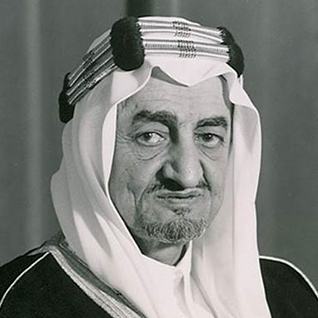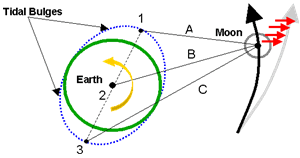Good Citizens are those who fulfil their responsibilities. They are loyal and patriotic to their country. They do their duties honestly and selflessly. They do not keep talking about their rights. Instead they busy doing their duties. Good citizen are a model of discipline, They show discipline in everything. It may be talking, walking, eating, sitting, standing, anything. We can not become good citizens without discipline in life. If we follow discipline in life, we can change our fate and our country's fate too.
Monday, 8 February 2016
Responsibilities of good citizen.
Good Citizens are those who fulfil their responsibilities. They are loyal and patriotic to their country. They do their duties honestly and selflessly. They do not keep talking about their rights. Instead they busy doing their duties. Good citizen are a model of discipline, They show discipline in everything. It may be talking, walking, eating, sitting, standing, anything. We can not become good citizens without discipline in life. If we follow discipline in life, we can change our fate and our country's fate too.
Sunday, 7 February 2016
KING FAISAL
The late King of Saudi Arabia was born in 1907, and was the second son, of king Abdul Aziz Ibne Sa'uz. He received religious education from his maternal grandfather Sheikh Abdullah bin Abdul Latif. After completing his education at an early age, Faisal started taking interest in the affairs of the started and helped his father in governing the country. He was made Governor of Hijaz, when he was only twenty. Latter on, he served as Saudi Foreign Minister visiting several countries of the world where he held important discussions and gained a great deal of experience. He also, had the opportunity of holding the command of the Armed Forces of his country.

After the death of King Abdul Aziz, his eldest son Sa'ud become the King, Faisal was made the Crown Price and Prime Minister in 1958, Saudi Arabia was in serious difficulties at that time. Faisal used his wisdom and intelligence to overcome these difficulties at that time,
Faisal used at that time his wisdom and intelligence to overcome these difficulties, In 1969, he resigned from the post of the prime Minister, but accepted it again in 1962. His elder brother King Sa'ud fell seriously ill in 1964, and Faisal was chosen as the King by the Council of ministers.
King Faisal was devoted to Islam. He was a good Muslim and led a simple life. He did his best to see his people live according to the teachings of Islam. He possessed great qualities of leadership and proved to be an able ruler. He loved his people and ruled the country wisely and justly under his rule, Saudi Arabia made great progress in many fields. He spend a lot of money on the development of his country. The main source of income for Saudi Arabia is mineral oil, and he made every effort to increase its production new factories and mills were set up in Saudi Arabia. and industry made great progressed. Vest areas of the desert were irrigate and new lands were brought under cultivation.
NURSING
Nursing means taking care of and looking after the sick, the injured, the young old or the helpless, with love and sympathy. It is difficult to say at what point in history nursing was organised in a scientific way. Yet it is easy to understand that it must be as old as man's feeling for his suffering fellow men. For only sympathy and love could move one human being to feel sorry for someone in distress, to look after him in sickness and try to do someone for him and to restore him to health.
Islam regards nursing very important. Our Holy Prophet (peace be upon him) visited the sick regularly, comforted them and spoke kind words to them. He would go, even to inquire after his ailing enemies. He urgent the Muslims to help those who were sick or suffering. On the battlefield, all Muslim soldiers were always very kind to the sick, old and the injured. They never killed their wounded enemies. Muslim ladies were very active on the battlefield giving water to the soldiers and tending the wounded and the sick.
Nursing was not at all popular in the beginning. Parents did not allow their daughter to become nurse. This can perhaps be best shown in the story of the girl, who in 1851,became the founder women in history. Her name was Florence Nightingale. Florence Nightingale was born in the town of Florence in Italy in 1820.
Saturday, 6 February 2016
Anatomy of the Heart
Your heart is located under your ribcage in the center of your
chest between your right and left lungs. Its muscular walls
beat, or contract, pumping blood to all parts of your body.
The size of your heart can vary depending on your age, size,
and the condition of your heart. A normal, healthy, adult
heart usually is the size of an average clenched adult fist.
Some diseases can cause the heart to enlarge.
The Exterior of the Heart
Below is a picture of the outside of a normal, healthy, human
heart.
Heart Exterior
In figure B, the heart is the muscle in the lower half of the
picture. The heart has four chambers. The heart's upper
chambers, the right and left atria (AY-tree-uh), are shown in
purple. The heart's lower chambers, the right and left
ventricles (VEN-trih-kuls), are shown in red.
Some of the main blood vessels (arteries and veins) that
make up your circulatory system are directly connected to the
heart.
The Moon is Receding, and the Tides are to Blame

The Moon gets further from the
Earth by about 4 cm per
year.
The graphic helps understand
why:
1. The Moon raises tidal bulges in the Earth’s oceans.
2. As the Earth rotates, friction causes the tidal bulge to be
pulled in the rotation direction, so that it is not directly under
the Moon.
3. The water in the bulge exerts a small gravity force on the
Moon. Because of the bulge’s offset, part of this force is to
the left, and this causes the Moon to speed up slightly.
4. As it speeds up, the size of its orbit increases.
Distance measurements using lasers are so precise that the
increase in orbit size has been verified. In a few hundred
million years, the Moon will be far enough away that it can no
longer cover the Sun, and there will be no more total solar
eclipses.
The same phenomenon causes the Earth’s rotation rate to
slow down. The total Earth-Moon angular momentum must
remain constant, and as the Earth imparts angular
momentum to the Moon, the Earth’s angular momentum (and
rotation rate) must decrease.
what is science?
Science is an intellectual activity carried on by humans that is designed to discover information about the natural world in which humans live and to discover the ways in which this information can be organized into meaningful patterns. A primary aim of science is to collect facts (data). An ultimate purpose of science is to discern the order that exists between and among est the various facts.
Subscribe to:
Comments (Atom)